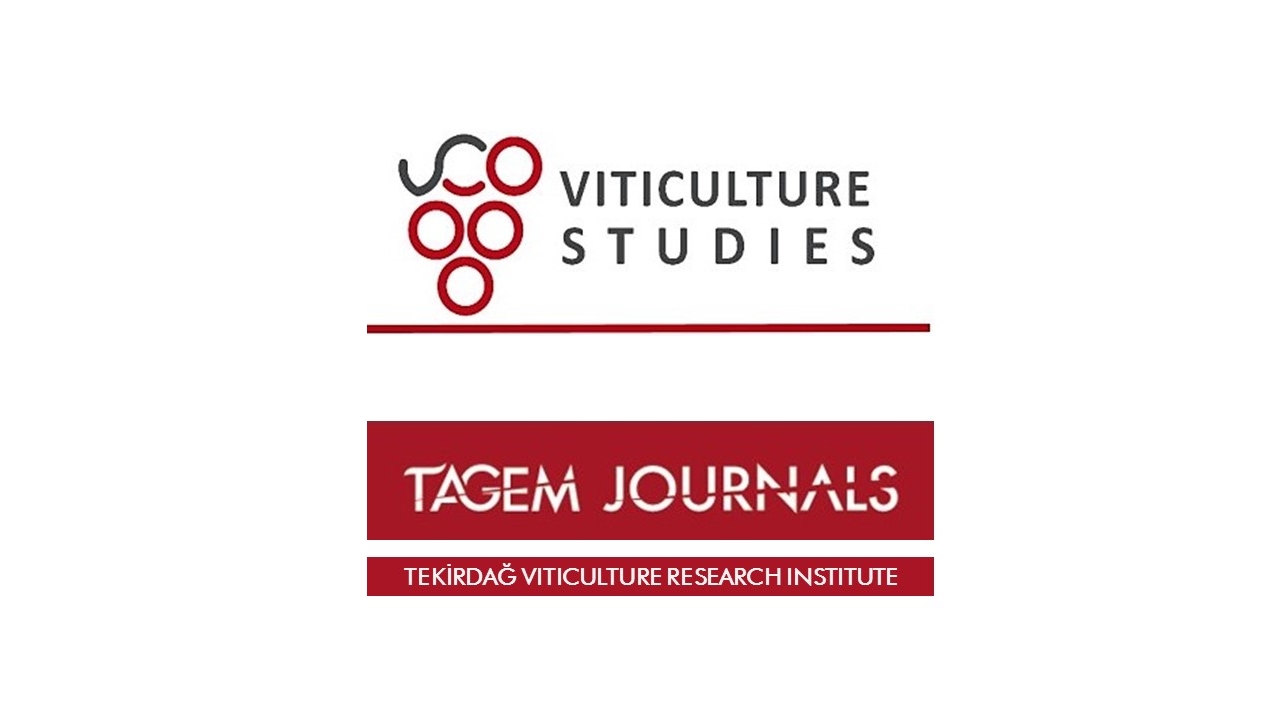
http://www.viticulturestudies.org/
The Viticulture Studies (VIS) is the scientific publication of the Tekirdag Viticultural Research Institute. Journal appears biannual and is an international, refereed and open access journal, VIS aims to increase the sharing and dissemination of information at international level.
Viticulture Studies Scope
Viticulture Studies publishes original scientific papers and critical reviews concerning grapevine physiology and biology, molecular biology, breeding, genetic resources, disease and pests management, economics of viticulture, grape products processing and post harvest physiology, vineyard mechanization, vineyard soil-water management and nutrition, oenology and related fields. Original research articles and reviews, submitted to the journal must be in English and must not have been previously published. The full texts of research articles presented at scientific meetings like congress, symposium, etc. which only abstracts published, can also be published in journal. Viticulture Studies is published digitally. All responsibilities regarding scientific content and results and compliance of the studies with international scientific and publication ethics belong to authors. In the same issue of the journal, maximum two articles of an author are included. Authors are not paid royalties, and articles are not charged.
Viticulture Studies Ethical Principles
Viticulture Studies performs the recommendations of "COPE Code of Conduct and Best Practice Guidelines for Journal Editors" and "COPE Best Practice Guidelines for Journal Editors" published by the Committee on Publication Ethics (COPE) on publication ethics and takes into account COPE processes when evaluating misconduct behaviours.
VIS is a peer-reviewed journal aiming to provide universal publication ethics norms. Journal expects from editors, authors, reviewers, publishers and readers to accept the same behavior norms.
General duties and responsibilities of editors
Editors are responsible for all material published in the Viticulture Studies. So editors bear responsibility;
To meet the needs of readers and authors,
To improve the Viticulture Studies consistently,
To provide the necessary processes to improve the quality of the published articles,
To respect and support the freedom of expression strictly,
To ensure and maintain academic integrity of articles,
To prevent compromising from intellectual and ethical standards due to professional relations,
Not to avoid from the requirements such as correction, explanation, withdrawal and publishing an apology when it is necessary.
Editors should consistently improve their review and decision quality and performance by observing the publishing processes and timings within the frame of the principles of independency, objectivity and confidentiality.
Ethical principles for editors
All submitted manuscripts are evaluated according to intellectual content regardless of the differences of the authors such as gender, race, religion, ethnicity, nationality and political views.
Editorial decisions are made depending on the quality of the studies and the reviewer evaluation regardless of political, religious, financial or personal effects.
Editors are reponsibile for guiding authors and reviewers for necessary all information.
Editors are responsible for conducting an appropriate peer review process for journal policy and fields of study.
Editors can submit their work to the journal, but in this case they should not take advantage of their positions and the process should be carried out according to journal policies.
Personal information about the studies will be kept confidential.
All conflicts of interest and plagiarism identified by editorial board members and determined in published articles must be disclosed.
http://www.viticulturestudies.org/